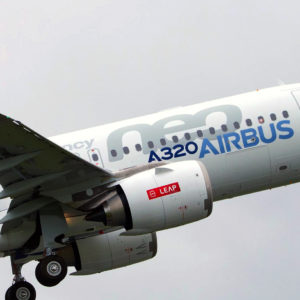
The European Union Aviation Safety Agency (EASA) has penned a safety directive stipulating additional checks for Airbus A320 family aircraft, following reports of faulty cockpit readings, suggesting potentially blocked sensors, after aircraft had been grounded over the pandemic.
Industry experts have long warned that planes being parked and temporarily removed from service for longer than ever intended could lead to safety concerns as and when airlines bring aircraft back online.
Now, in a safety directive to Airbus, EASA has highlighted that “an increasing number of operational disruptions have been reported due to airspeed discrepancies” as aircraft return to the sky.
Pilots are trained to rely on airspeed readings, which measure and compare the dynamic air pressure between air moving into the pilot tube and static air pressure. However, debris, dirt, or insect nests can affect accurate readings – this is why they are to be checked every 24 months.
While the EASA said these blocked readings did not result in any “injuries, aircraft or system issues”, the directive prompts Airbus to implement further checks through computer simulations, which can highlight any sensor issues.
The EASA can issue airworthiness directives to ensure safety is first priority. According to the agency, no person may operate an aircraft to which an airworthiness directive applies, until the directive has been followed.
The EASA saw a large increase in unreliable cockpit indications after two-thirds of the world’s fleet were, at one point, entirely grounded due to the COVID-19 pandemic.
In most cases, the problem was traced back to undetected insect nests inside the aircraft’s pitot tubes, pressure-sensitive sensors that feed key data to an avionics computer.
Airbus in May implemented a task force to enable the safe return of aircraft back into service. The company also increased audits with its supply chain as it warned suppliers risks such as incorrect storage or equipment or corroding, according to industry sources.
Mid-last year, a Wizz Air jet halted take-off after the captain found the airspeed was reading zero, after being parked for 12 weeks.
Later, the US Federal Aviation Administration (FAA) issued an emergency airworthiness directive for Boeing 737 aircraft, warning of potential corrosion issues on planes that have been parked amid the COVID-19 pandemic, which could lead to a dual engine failure.
These inspections saw some older 737 aircraft forced to end their functional life.
Most hangar facilities can house 10 per cent of their fleet at any given time but, due to the pandemic, most saw at least 80 per cent require parking space, which meant many jets were parked for extended periods outside in the elements.




